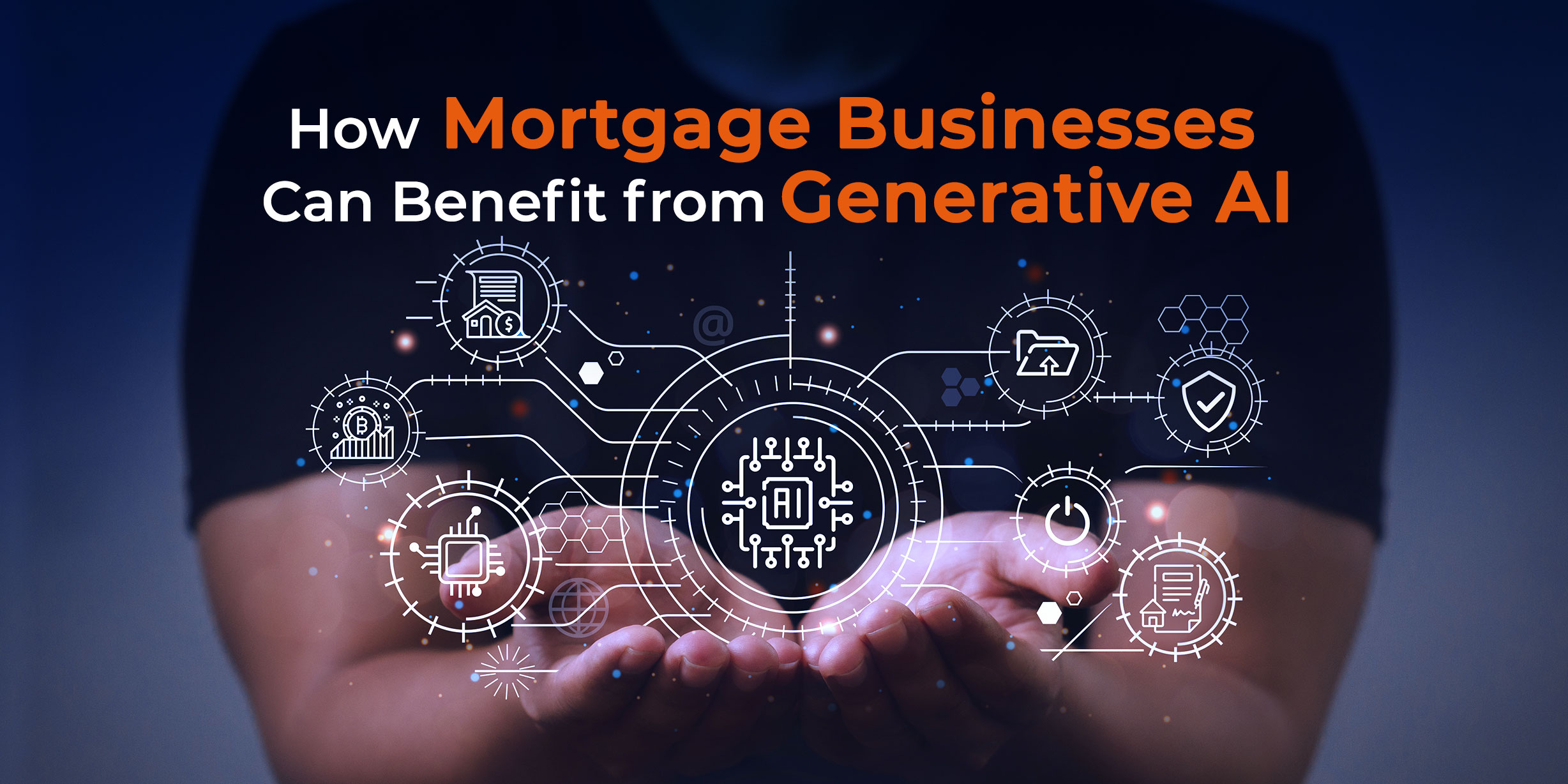Artificial intelligence (AI) has brought about sweeping changes in the mortgage sector. 42% of lenders use AI and machine learning (ML) primarily to improve operational efficiency, and 41% believe that the technology can improve borrower experiences. Indeed, more than half of mortgage customers would rather deal with a financial services institution that has ML capabilities than one that relies solely on human executives.
In other words, AI – i.e., the ability of computers and machines to understand human input and make cognitive decisions towards automating tasks – is firmly entrenched in mortgage processes. However, up until now, the aim has only been to validate or ease human judgment and not replace it altogether. This can change with the latest advancement in AI technology: generative AI.
Also read: Hot Take: AI Could be the Answer to Every Mortgage Servicing Problem Today
What is Generative AI?
Generative AI refers to computing algorithms that are capable of mimicking the human creative process. It does not just ingest human inputs to return a YES or No answer or, at best, to churn out an insight or recommendation. It takes the human inputs and then actively creates an artifact that resembles the input provided, but is different and wholly original.
A truly sophisticated generative AI system may be capable of creating a fine art masterpiece, composing original music, or writing text that is indistinguishable from a human author. The implications of this are immense. That is why Gartner predicts that 20% of all test data for consumer-facing use cases in AI will be synthetically generated by 2025. Stanford predicts “generative everything” to be a top trend for the next decade.
Also read: 5 Ways You Can Benefit From an AI-Powered Digital Lending Platform
How Can Generative AI Transform Mortgage Businesses?
While the lowest hanging fruits for generative AI may be in the media & entertainment and healthcare sector, the financial services and mortgage industry provide plenty of use cases.
1. AI for scalable product campaigns
New product introduction in mortgage is a complex process, as it involves the creation of documents, standards, promotional text, tutorial videos, etc. The material must comply with institutional and industry regulations, while also being comprehensible to different stakeholders. Generative AI engines can parse through and learn from previous product campaigns to create this body of materials automatically.
2. AI generated servicing communication
Another benefit of generative AI in mortgage is its ability to mimic the human creative process when communicating with people. As such, it would be able to craft servicing messages that are nuanced, polite, yet effective and comprehensive – connecting with customers on a personal level without actually needing human executives. To begin with, lenders must move to a robotic process automation (RPA) powered servicing function and then upgrade to generative AI.
3. Generative adversarial networks (GANs) for fraud detection
As per Gartner, this will be among the key benefits of generative AI in mortgage and banking. A GAN operates by positioning two neural networks against each other in a zero-sum game so that one neural network ultimately reaches the objective by competing with its opponent. Generative AI can use GANs to assign every transaction with a completely new risk score that is not rule-based. Indeed, Swedbank is already using generative AI for this purpose.
4. Creating accurate borrower profiles
Traditionally customer profiles have been based on demographic data, or, at best, contextualized information gathered from customer communication across channels. This means that the AI’s capacity is limited to only finding and matching patterns that it has met in the past. Generative AI in mortgages would be able to conjure up new profiles that would inspire more profitable products. GPT-3 is a generative AI algorithm that is already enabling this to an extent.
5. Bias-free applicant selection
There is always a risk of bias creeping in when one uses machines to screen applicants, and human executives, too, may suffer from unconscious bias. Generative AI may counter this by crafting fair and bias-free AI training data instead of the existing models that are replete with issues. Recently, a Journal of Financial Economics study found that borrowers from minority groups may be charged 8% higher interest rates and are 14% more likely to be rejected by an AI app. It is possible to address this using generative AI in mortgage.
6. Maintaining customer data privacy
Customer data is often used by financial service institutions for a variety of purposes, such as personalization, borrower cohort analysis, AI model training, etc. Generative AI can create synthetic data sets that are as accurate and “real” as genuine borrower information without compromising privacy. This will also reduce lenders’ exposure to data breaches.
Also read: 5 Signs it’s Time to Upgrade Your IT Infrastructure
Discover the Benefits of Generative AI for Your Business
Adequate digital maturity is a prerequisite for generative AI adoption. At this time, there are only a few instances of generative AI in use across sectors, and almost no packaged solutions. This also means that mortgage businesses that succeed in becoming early adopters stand to gain a significant competitive advantage.
Simply put, generative AI would allow institutions to break through the logical limitations of machine intelligence that exist today, and get one step closer to human cognition. At Nexval, AI/ML, RPA, and generative AI are among our core focus areas as we research and build cutting-edge solutions for your business problems. We also ensure that your digital bedrock is robust and seamlessly functioning to support agile innovation over the next decade.
To discover the benefits of generative AI for your mortgage business, speak with our Tech Gurus today.



